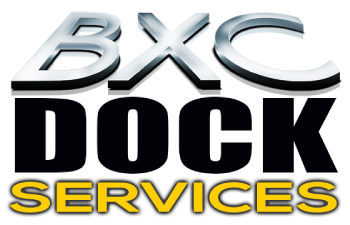Selecting the right dock for a warehouse or distribution center can be tricky. The wrong choice may slow down operations, cause maintenance headaches, and increase downtime. BXC Dock Services helps facilities pick the right solution based on traffic, space, and operational needs. Understanding the differences between fixed and floating docks ensures smoother loading, safer work conditions, and long-term reliability.
What Are Fixed and Floating Docks?
Fixed docks, sometimes called in-pit docks, include traditional pit dock levelers, vertical storing levelers, and fully built dock pits. These docks form a permanent link between the building floor and trailers. They are often chosen when climate control, cleanliness, and heavy, repeated use are priorities. Fixed docks create a steady, reliable platform for everyday operations and reduce movement issues, keeping loading safe and consistent.
Floating or portable docks, on the other hand, include edge-of-dock (EOD) levelers, portable yard ramps, and other no-pit solutions. These attach to the dock face or sit outside the building. They avoid the need for pit construction, can be installed quickly, and can even be moved between sites. Floating docks work well for facilities that need flexibility or cannot afford long shutdowns.
Key Factors to Consider
Operational Traffic and Cycle Rate
High-volume warehouses with heavy traffic usually benefit from in-pit or heavy hydraulic levelers. These can handle repeated use without wearing out quickly. Facilities with lighter traffic or lower cycle rates may find floating docks more cost-effective. Comparing daily operations and load cycles can help decide whether fixed vs floating docks are the best option.
Climate Control and Cleanliness
Temperature-sensitive warehouses, cold storage, or cleanroom environments require docks that maintain interior conditions. Fixed docks, particularly vertical storing levelers, pair well with inflatable seals and overhead doors. Floating docks can be versatile but may not seal as tightly. Facilities focused on cleanliness or temperature control often prioritize in-pit options with proper sealing.
Site Constraints
Building layout, headroom, and available space play a big role in dock choice. If a pit cannot be built, floating solutions like edge-of-dock levelers or portable ramps are practical. If space allows, in-pit docks provide a flush, permanent interface with the trailer. Evaluating the site carefully ensures the dock fits smoothly into operations without causing future issues.
Installation Disruption and Cost
Building an in-pit dock involves excavation and structural work, which can be time-consuming and expensive. Floating docks and portable ramps require less installation work and can restore loading quickly. Many facilities, including those looking for loading dock Doral solutions, prefer floating options when minimizing downtime is critical.
Maintenance and Longevity
Both fixed and floating docks need regular maintenance to stay reliable. Fixed docks are durable but still require inspections, servicing, and stocked parts. Floating docks benefit from planned service programs, too. Scheduling maintenance reduces unexpected downtime and keeps operations running smoothly.
Choosing the Best Dock
Deciding between fixed and floating docks comes down to balancing durability, flexibility, and operational needs. Fixed docks are best for high-volume, climate-sensitive environments because they provide long-term reliability. Floating docks offer fast deployment, mobility, and lower installation disruption, which makes them suitable for temporary setups or sites with limited pit space. Facilities near water may consider the best dock for lakes and rivers to handle unique site conditions safely.
Why BXC Dock Services
BXC Dock Services offers a wide range of solutions, from mechanical and hydraulic levelers to vertical levelers, edge-of-dock units, and portable ramps. Their experts assess site layout, operational needs, and environmental requirements to recommend the most effective dock. With stocked parts, maintenance programs, and retrofit options, we ensure any dock runs reliably. Facilities in need of Loading Dock Repair or consultation can rely on their tailored, professional approach.
Frequently Asked Questions
- How do I decide between a fixed or floating dock?
Check daily traffic, load weight, space availability, and climate control needs. High-use, temperature-sensitive environments usually benefit from fixed docks, while flexible setups may prefer floating docks. - Can floating docks handle heavy loads?
Floating docks are suitable for moderate loads and lighter cycles. Very high-cycle operations generally perform better with fixed in-pit docks. - What role does climate control play in dock selection?
Fixed docks with vertical levelers and proper seals maintain interior conditions better. Floating docks may need additional sealing measures for sensitive environments. - How should docks be maintained?
Regular inspections, scheduled service, and parts availability are essential for both fixed and floating docks to avoid downtime. - Are portable docks easy to move?
Yes, floating and portable solutions are designed for mobility and quick deployment, which is ideal for temporary or multi-site operations.
Get Expert Dock Solutions Today
Choosing the right dock ensures safer, more efficient, and reliable warehouse operations. BXC Dock Services provides expertise and tailored solutions for fixed and floating docks. Whether selecting durable in-pit levelers or versatile portable ramps, Dock Services supports installations with maintenance programs, stocked parts, and expert guidance. For professional advice, Loading Dock Repair, or site-specific recommendations, contact us today to explore options and request a personalized quote.

